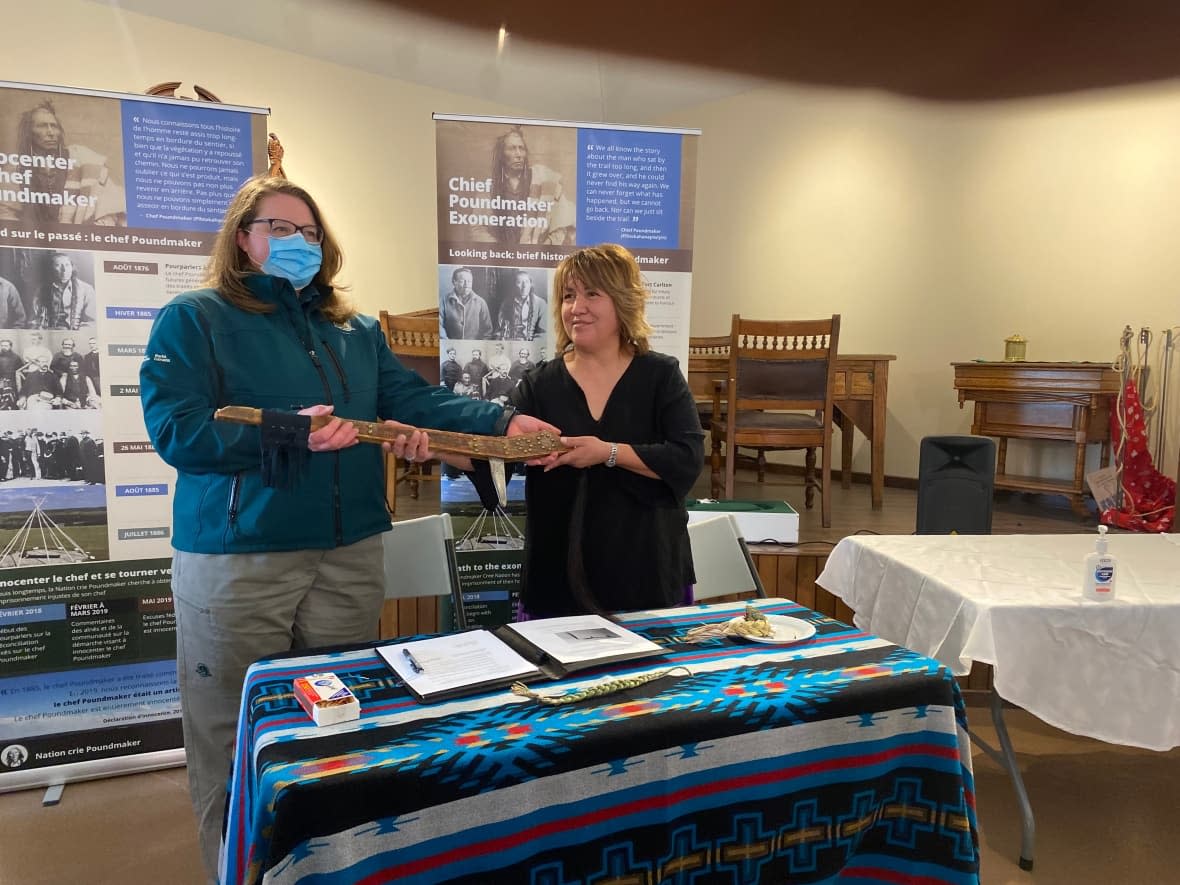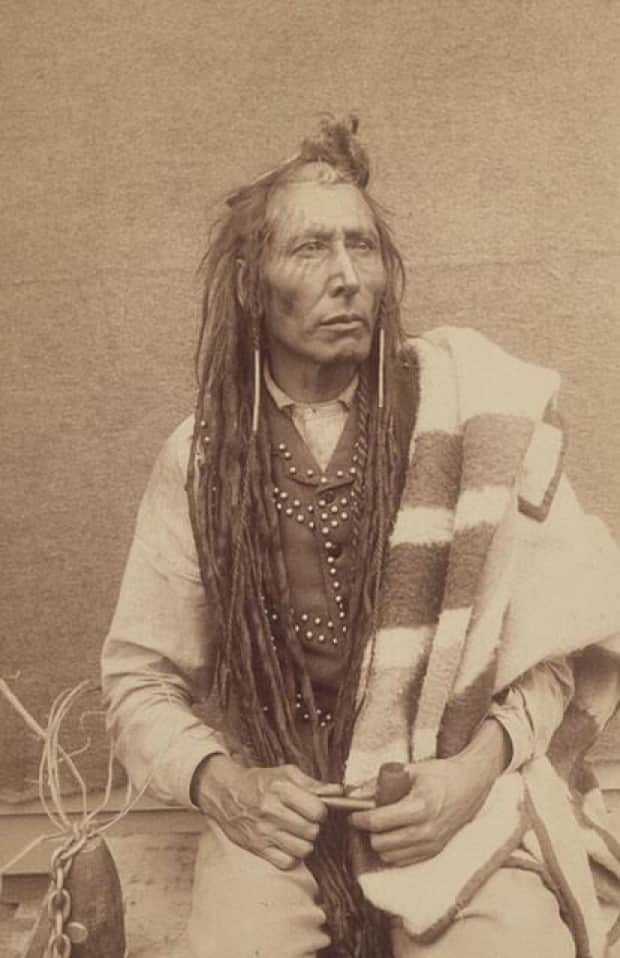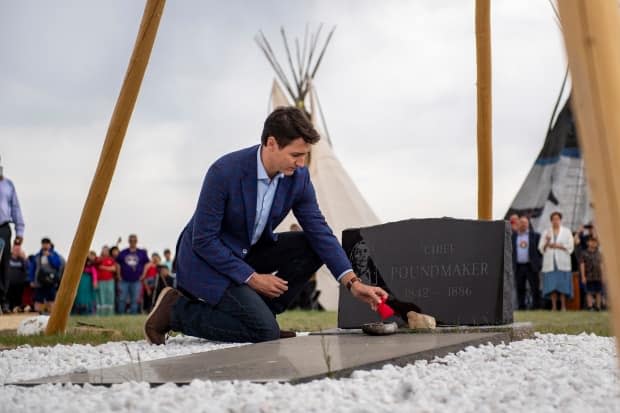Sacred artifact that belonged to Chief Poundmaker repatriated after years of efforts

Chief Poundmaker's family says today's event will help his spirit rest.
Descendants of the Plains Cree leader have repatriated a staff stolen from him following the Northwest Resistance in 1885.
Poundmaker, whose Cree name was Pihtokahanapiwiyin, was convicted and jailed in 1885 for "treason-felony." He and other First Nations leaders were wrongly accused of instigating violence.
Many of his possessions were seized and ended up in museums across Saskatchewan and around the world.
The staff was in Parks Canada's possession. The long-awaited repatriation ceremony took place at the Fort Battleford National Historic Site on Wednesday.
Pauline Poundmaker, great-great-granddaughter of the famous chief, made the request for repatriation of the staff and accepted it from Parks Canada.
"Today is … another historic day," she said. "I'm thinking about my mother … she would be proud."
The family and community have been working for many years to repatriate various items taken from Poundmaker during the events of 1885.

Pauline said she found out around 1996 about a sacred artifact that belonged to her great-great-grandfather and first learned about repatriation protocol. Poundmaker's ceremonial war club and other items were brought home for the first time in 2017.
Pauline contacted Parks Canada about the staff in February 2021.
Poundmaker descendants have right to request all artifacts: museum curator
Floyd Favel, curator of the Chief Poundmaker Museum, said the family has the right to all of Poundmaker's items.
"This event today is a good closing of a circle, one circle," he said.
"Hopefully the authorities and other institutions in Canada and in the United States and the world can recognize our loss and give these items back to correct history."
Flavel and the Chief Poundmaker Museum are at the forefront of global efforts to repatriate Indigenous art and artifacts, working with museums in Europe and private collectors, among others.

PM exonerated Poundmaker in 2019
On May 2, 1885, federal troops attacked the Poundmaker's band at Cut Knife Hill, but were driven back. Poundmaker prevented his warriors from pursuing and slaughtering the federal troops.
Days later, Poundmaker traveled to meet federal officials. He wanted the government to honour treaty promises to supply agricultural tools and other materials after the demise of the buffalo herds.
Instead, Poundmaker was arrested and convicted. He was released from prison six months later after contracting what soon became a fatal respiratory disease.
Prime Minister Justin Trudeau exonerated Poundmaker in May 2019 and apologized for the conviction on behalf of the federal government.


